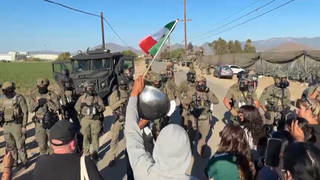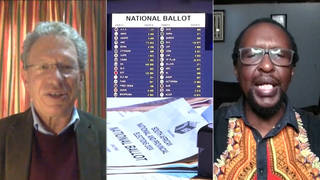
Topics
By Amy Goodman with Denis Moynihan
Nelson Mandela’s passing last week at the age of 95 has been met with a global outpouring of remembrance and reflection. A giant of modern human history has died. Mandela is rightly remembered for his remarkable ability to reconcile with his oppressors, and the political prescription his forgiveness entailed for the new South Africa. “Never, never and never again shall it be that this beautiful land will again experience the oppression of one by another,” Mandela said in his inaugural speech in Pretoria, on May 10, 1994. In the same speech, he pledged, going forward, “to liberate all our people from the continuing bondage of poverty, deprivation, suffering, gender and other discrimination.” Mandela has passed, but what he has passed on to succeeding generations is his deep belief in the power of movements to make change.
He spent his early years in the African National Congress (ANC) organizing noncooperation, like the Defiance Campaign in 1952, when he was photographed burning his passbook, the dreaded photo documentation without which black South Africans could not travel within their own country. By 1960, following the Sharpeville Massacre, where the white government’s police forces killed at least 69 people who were protesting the pass laws and the passbooks, the government banned the ANC. Mandela and others went underground, forming the ANC’s armed wing, calling it Umkhonto we Sizwe, or “Spear of the Nation.”
Read the full column here.












Media Options